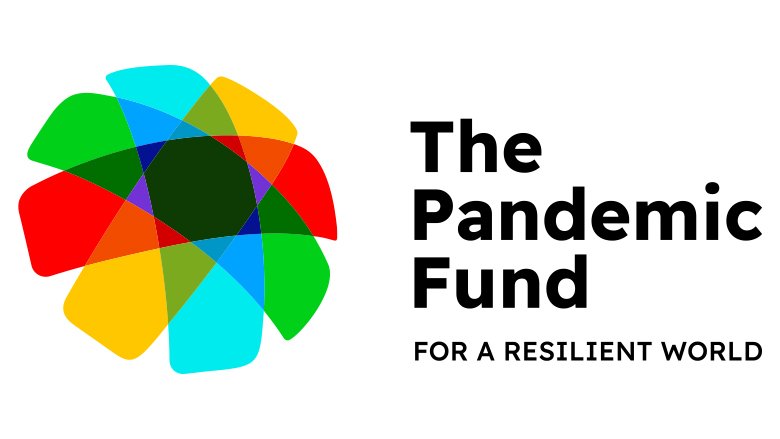This is one of 19 projects to which a grant was awarded by the Pandemic Fund under the First Call for Proposals. For information on the full set of projects supported by the First Call for Proposals, please refer to this press release.
Background
Nepal is a landlocked country located between India and China. Many factors make Nepal particularly vulnerable to disease outbreaks, epidemics and pandemics. Land use patterns are changing with the intensification of agriculture, including the expansion of monoculture and the clearing of forests. Its rich biodiversity and human-animal contact increase risks of zoonoses. Its open borders pose risks for the transmission of pathogens from neighboring countries, as well as other population movements, including migrants returning from many countries and tourism. The Himalayas are a fragile ecosystem highly vulnerable to climate change, with risks of melting glaciers that will alter the ecosystem. Public health infrastructure is weak. In the 2023 State Party Annual Health Assessment Reporting Tool (SPAR), Nepal scored an average of only 47% for International Health Regulations (IHR) core capacities, compared to the global average of 66%. The Pandemic Fund’s $19 million grant, along with an additional $4 million in co-financing and $2 million in co-investment, will support a partnership between the Government of Nepal (GON) and three Implementing Entities (IEs), FAO, UNICEF, and WHO, to strengthen the country’s pandemic prevention, preparedness, and response (PPR) efforts.
Project objectives
The Strengthening Pandemic Preparedness for Early Detection in Nepal (SPEED) Project aims to strengthen the country's surveillance, laboratory system, and human resources for a strong, resilient, and sustainable health security system.
Implementation arrangements and key components
The GON coordinated among its ministries (Health, Agriculture and Livestock, Finance, Water Supply) and the three IEs to design activities to address the recommended priorities from the 2022 Joint External Evaluation (JEE) and the Performance of Veterinary Services (PVS) gap analysis and report (2011, 2008). Project design considers ongoing related activities supported by other donors including the EU, Global Fund, and USAID, among others, so that project activities are complementary. A Technical and High-Level Coordination Committee, established by the GON, will guide the implementation of SPEED and its core components. All three IEs are supporting elements of all three components.
- Building capacity in surveillance and early warning systems. SPEED will build capacity for bacterial culture for antimicrobial resistance (AMR) surveillance, establish linkages between points of entry and the national surveillance system, and operationalize an alert and response framework for effective call centers, media scanning, community, and hospital/lab-based surveillance. SPEED will also strengthen the digital platform for data sharing, develop risk assessment frameworks, operationalize federal-provincial and local level rapid response teams, and initiate community-based surveillance. It will build capacity for animal health personnel in disease recognition, reporting, and analysis of surveillance data. SPEED will also develop water quality and environmental surveillance mechanisms.
- Improving laboratory systems. In the human and animal health areas, SPEED will build capacity at provincial and local levels for sample collection and the implementation of sample referral and transportation mechanisms, including quality assurance. It will develop a national document for laboratory quality assurance programs, standardize laboratory licensing mechanisms with reporting mechanisms, facilitate accreditation of priority laboratories, conduct simulation exercises, and develop protocols for sequencing capacity in the human and animal health sectors. In the area of water quality and wastewater testing, SPEED will assess capacity and map water and wastewater quality labs (both public and private), develop protocols for collection and testing of water quality and wastewater samples, and enhance laboratory capacity for such testing. It will also set up an information management system for these labs.
- Strengthening human resources and workforce. As a cross-cutting core component, SPEED will assess current workforce capacity, build capacity for rapid response teams, develop strategic roadmaps for Field Epidemiology Training Programs, and conduct competency-based training programs for field practitioners and laboratory staff. SPEED will support training programs for veterinarians and establish field veterinary epidemiology programs. It will support simulation exercises for early detection and response on water quality and wastewater monitoring and surveillance.
Expected outcomes
Within the three-year implementation period, SPEED supported activities will result in increased JEE, PVS, and SPAR scores for surveillance, laboratory, and workforce. With more timely detection, notification and response in Nepal, the health, social and economic impact of potential outbreaks/epidemics will be reduced, especially for the most marginalized and vulnerable subgroups.
Key Financial Statistics
| Amount Approved (US$) | Total Co-financing (in kind & in cash) (US$) | Total Co-investment (in kind & in cash) (US$) |
| 18,842,920 | 3,910,678 | 2,396,702 |
For inquiries about this project: Dr. Krishna Paudel - kpkalyan@gmail.com
For media inquiries: Anita Rozowska - arozowska@worldbankgroup.org
For general inquiries: the_pandemic_fund@worldbank.org

